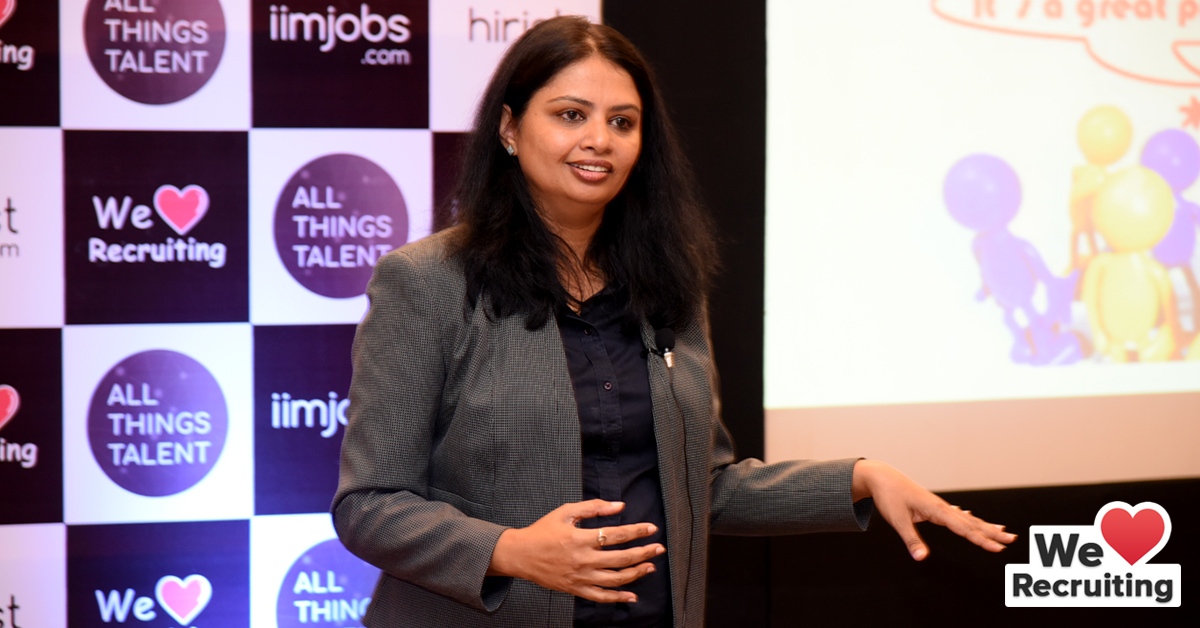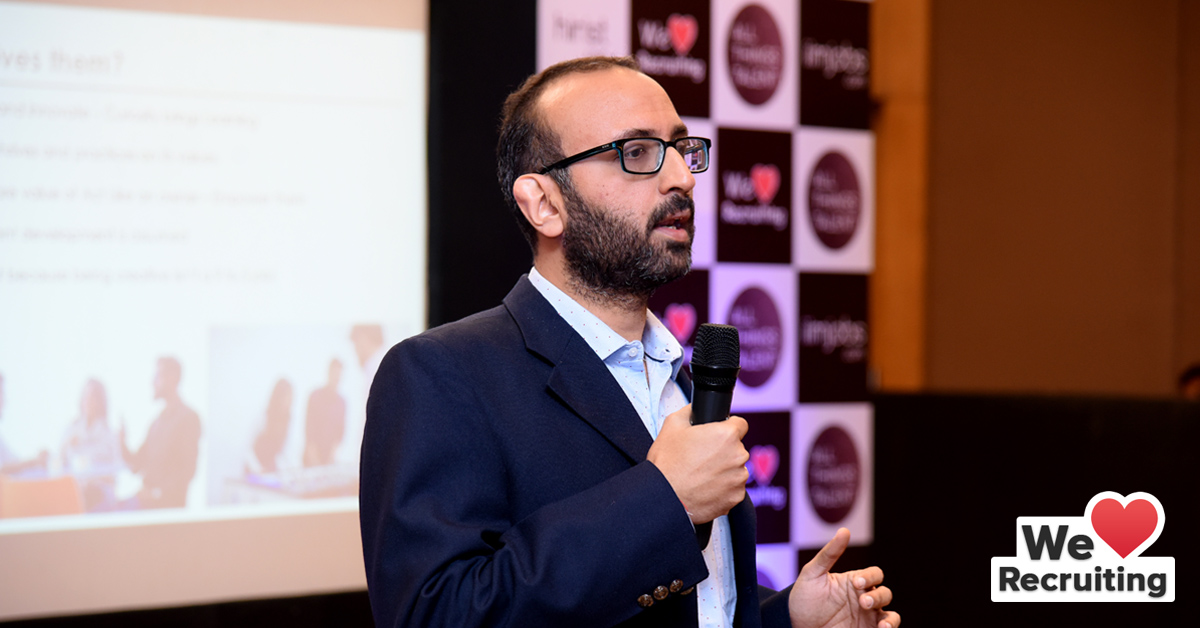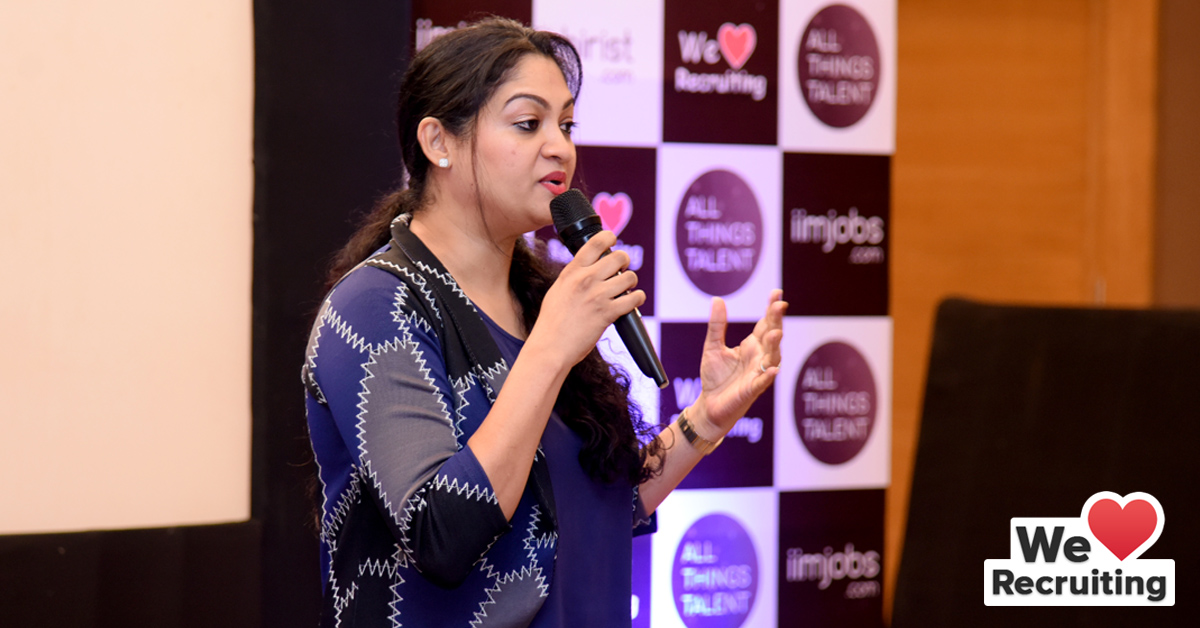
The All Things Talent community began its quarter by hosting another successful event in Bengaluru, centered on "Decoding the Talent Strategy for Millennials." The event commenced by introducing All Things Talent as a community for HR personnel, with the session set to provide an opportunity for the audience to learn, grow and get empowered by some of the experts from the field.
“Decoding the Talent Strategy for Millennials” saw a diverse set of opinions, best practices, technological shifts along with multiple strategies the organisations use to empower and engage the millennial crowd.
The leaders at the event were:
- Lakshmi Sridhar: Vice President, Corporate Talent Acquisition at Microland India
- Vipul Mehrotra: Talent Acquisition Leader at Swiggy
- Atirek Gautam: Leader, Talent Acquisition & Mobility
- Mridula Venugopal: Head, Human Resources at JCPenney
Lakshmi Sridhar was the first to take the floor and was quick to point out emerging trends among millennials. “Employer brand is not something that has come into focus now, it has been existing since our parents' time.”

Driving the focus onto the millennials: “The way millennials are brought up, they have always been empowered to take decisions and because of the shift in the talent profile, they have access, means and information about the organization culture. It wasn't the same a couple of generations earlier.”
42% of the millennials say that they would like to work with the leaders who encourage sharing new ideas regardless of their seniority. Lakshmi elucidated on the fact that millennials wanted to be a part of an organization where they have the freedom to speak, express themselves, innovate and contribute.
Driving the focus on interviews and employer branding, her inputs included finding out about what the organization has to offer to them rather than being told what is to be done. She further added that senior members agreed on having an efficient Employer Brand being useful both for internal and external purposes in terms of building a talent pipeline and a long term strategy.
She concluded the session by correlating how business and markets are dynamic and in the end, we just want everybody to say "Hey, this is a great place to work!"
"Have you seen a floppy disk?" Vipul began, when followed after Lakshmi in his interactive session on acquiring and on-boarding millennials.

"What makes the millennials different? They believe in complex, real problems, they are curious to learn and this is where you hit the chord."
Vipul believes that millennials know how to break the problems, segmentize them and are open to questions, making for quite an innovate package. Millenials' curiosity makes them different. They don't believe in hierarchies. “Learning is a given and talent development is assumed.”
During his current experience at Swiggy, Vipul’s observations of millennials involved a flexible environment, no moral policing, no monitoring, a review mechanism and a provision of a creative space.
A propeller of an inside-out approach, Vipul firmly believes that “If your own employee is not happy and is not seeing a phase of growth, it will not resonate with the outside world.”
Vipul's session concluded on the note of how essential it is to connect with millennials whilst they are in their colleges, identify the right talent, make them their brand ambassador and then bring them in. Coupling all the practices with the right feedback and engagement will empower them to join an organization and sustain their careers.
Atirek Gautam’s session on the impulsive, transparent, multitasking, well networked and tech- savvy millennials brought a series of fresh ideas on the table.

“We have layers of people in the organization. An organization like ours can not have millennials on the bottom of the pyramid and not have an impact on the other two layers.”
"Millennials are craving for awards, recognition and they want to see how will they grow in the organization. They seek “instant gratification” and want freelance flexibility with full-time stability."
He further spoke on the three stages of candidate management: Talent Attraction, Talent Acquisition and Talent Management.
On strategy, millennials worked well with digitalization of the candidate experience. Deep machine learning capabilities and open and transparent communications seems to work well with the millennials. Elementary changes make a bigger impact than having a paradigm shift, since they give an ease of workability.
Millennials are typically craving for awards and recognition. “By 2020, 50% of all our workforce would only have millennials. The strategies of the organization should be at par with what millennials desire”
Atirek’s session concluded with “It's imperative for us to know what the science is, what they want, and it is vital for us to implement it. People who adapt, evolve; otherwise they go extinct.”
Mridula’s session captured the attention of the audience by focusing on bridging the gap. “Who are these people that we want to hire, who would bring forth the excitement on the table and deliver world class hub? - Millennials”

Mridula focused on the teachings of Simon Sinek’s 4 key traits about millennials and millennials in the work-place, a believer that millennials are not dealt with a very fair hand. Parenting, Patience, Technology and Environment have a key contribution to the functioning of millennials.
- Parenting is now liberal. The way the kids have grown today is very different.
- Patience is a virtue, in a time where everything is instant. The way most products are delivered today, a sense of entitlement is naturally developed.
- Technology makes networking easier just with a touch of a hand. Most of our lives now revolve around tech.
- The Environment brings about a change to our practices. Dress-codes, timing, flexibility: are we ready to engage this age group? One should feel really engaged and happy to come to work. Your hiring practices need to be really intuitive and catering to the people.
Mridula also spoke about the trends she's observed working with millennials. "Patience is a virtue. Instant gratification is the way most products are delivered today. A sense of entitlement comes to the millennials by getting things done quickly. "
Her session concluded with inclusivity being the core of culture. “The gap is bridged by being inclusive. A real-time recognition of the skills, provision of flexibility, supplemented with online learning will enable bridging the gap. In the context of bridging the gap, the entire experience from the point of hiring to the point of exit, the entire experience has to be woven in such a way that one feels really engaged and happy to come to work."
The enthusiastic audience also shared some personal experiences of their learning which engaged the audience and the panelists. A diverse group led to a diverse set of opinions and best practices that gave an enriching experience.
Following the panel discussion, the event was concluded with a luncheon. We thank both the speakers and the audience for making this event a grand success.







